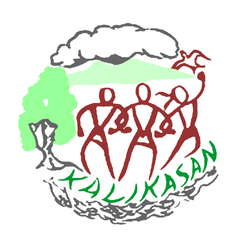The United Nations Framework Convention on Climate Change (UNFCCC) Conference of Parties (COP) is often paraded as the venue for climate action. It’s here that world leaders step up and make their pledges to tackle climate change. With COP 27 taking place this week in Sharm El Sheikh, Egypt, all eyes are on those attending.
With the coming conference, many say we’re running out of time. Some even say that limiting global temperature rise to 1.5 degrees Celsius — as urged by climate scientists — is no longer possible. Whatever the case may be, this COP is a critical moment for the planet and its people. Promises made in previous conferences will be revisited and assessed.
For the Philippines, the situation could not be any more urgent. Just last week, Typhoon Paeng cut a path through our country, taking over a hundred lives. The top ten costliest typhoons to ever hit the country have all taken place in the last fifteen years. Aside from typhoon impacts, changing weather patterns and rising sea levels threaten our country’s development. Things will only get worse for the Filipino people as global carbon emissions continue to spiral upwards.
As it has been for some time now, there is no time to lose for climate action. But what exactly should we expect from the Philippine government at COP 27?
Enter the new administration
Marcos Jr. has been building himself up as a climate advocate ever since he stepped into office, dropping all the right words in his speeches. A few months of his administration, however, has revealed that he has even less promise than anyone would have hoped. Reclamation projects have continued unabated. Mega-dams still threaten to displace Indigenous peoples. Institutions like the DENR have been disappointingly silent on some of the most critical environmental issues. Nothing seems to have changed, except for how the destruction is now masked by flowery rhetoric — greenwashing at its finest.
It will not be surprising if the Marcos Jr. administration uses COP 27 as another avenue for climate posturing. However, this COP can also be a way for civil society to gauge the administration’s seriousness in taking on the climate problem. Last year at COP 26, the Philippines opted out of some provisions of a treaty so that it can still have space to build new coal plants. Despite all the buttery language around climate in his first State of the Nation Address, Marcos Jr. still ended up endorsing the use of fossil gas.
These cracks in the greenwashed façade of the Marcos Jr. administration are what we need to watch out for. We should not and cannot buy into hypocrisy. The immense urgency of the climate crisis leaves us no space and time for anything less than what the situation demands.
Doubling down on climate finance
A core demand at these conferences that has gained traction in recent years is that of climate finance — that is, the financial obligation of the top polluting countries to those most impacted by climate change. The reasoning is simple: countries and communities that suffer yearly from intensifying heatwaves and rainfall often have a disproportionately small footprint in terms of greenhouse gas emissions. Of particular import is the discussion around loss and damage — the recognition that impacts fall beyond the strictly economic, as cultures, traditions, and much more have been lost to climate change as well. Civil society has pushed for climate finance to be at the center of the COP 27 agenda.
In a reasonable world, it should be a no-brainer that climate finance should be funneled immediately to the peoples that need it. This is obviously not the case. Despite promises made previously, the top economies of the world have admitted that they are falling short of delivering the needed finance for climate adaptation and mitigation. Top polluters like the United States have also been keen on striking down any attempts made at COP to concretize and follow up on their financial obligations.
In our current situation, the Philippines cannot afford to hide behind Marcos Jr.’s language of “friendship” when it comes to holding top polluters accountable. These governments need to be called out on their failure to deliver. If the Marcos Jr. administration is serious about climate justice, they can start by taking a firm stand on this issue, even if it means going up against so-called “allies” like the United States.
The people’s demands
Climate finance is just one aspect of the complex issue at hand. While the climate crisis cannot be solved overnight, things might start to change if the Marcos Jr. administration clearly commits, with clear plans of action, to the demands of the people in line with addressing climate change.
One step that can be taken is immediately issuing a moratorium on destructive projects that are plaguing the country. Reclamation, mining, and mega-infrastructure have caused irreversible damage to ecosystems and the communities dependent on them. These projects are often accompanied by a crackdown on local opposition, resulting in cases of harassment or even murder of our environmental defenders. Pausing these developments and conducting a more comprehensive assessment of the social and environmental impacts of these projects is one sure way of curbing the impacts of climate change and injustice in the country.
Another step would be making more space for democratic participation. Attacks against environmental activists and defenders have continued well into the Marcos Jr. administration. Fisherfolk, farmers, and Indigenous peoples continue to face reprisals for opposing ecologically-damaging government initiatives. It is no small requirement for climate justice that state practices of red-tagging and arbitrary arrest, especially those levied against environmental and human rights advocates, must stop.
Finally, maximizing recent developments such as the Philippine Commission on Human Rights’s report on the National Inquiry on Climate Change can be a starting point for concrete mechanisms for holding polluters accountable. The findings in the report allows the Philippine government to exact reparations from carbon majors — multinational companies who have contributed significantly to climate change — provided a legal framework exists to do so. This should also be a priority for the administration.
Our path beyond COP
Whether or not the Marcos Jr. administration will respond to these demands is certainly a question worth asking. But in our era of climate emergency, we cannot simply sit and wait for a response. Solutions need to happen now — and they are happening now, at the grassroots, in the communities most impacted.
One manifestation of this is the emerging People’s Green New Deal (PGND) in the Philippines, the first such deal in the Global South. The PGND is an initiative of civil society groups, people’s organizations, and grassroots movements all committed to developing a comprehensive alternative to the unsustainable and unjust status quo.
More than just proposing new legislation, what the PGND campaign wishes to capture and propagate is the power of direct action at the community level. In grassroots resistance against corporate plunder and neoliberal policies peddled by the government, communities are able to defend their rights, including their right to a healthy environment and stable climate. From the ongoing resistance of communities to coastal ecosystem destruction along Manila Bay, to the historic people’s barricade and continuing struggle of the people of Didipio, Nueva Vizcaya, against the mining of OceanaGold, the answers are right in front of us, here and now. The challenge is pushing others — and ourselves — to learn, organize, and mobilize for the future we want and need.
This is the glimmer of hope that we must cling onto as climate activists. Conferences and presidential speeches can take us a long way with promises, but at the end of the day, it is still action that matters. We won’t be waiting around for Marcos to make the first move.
Jon Bonifacio (he/they) is the Acting National Coordinator of Kalikasan People’s Network for the Environment (Kalikasan PNE). He is also a member of the Advisory Council of international human rights watchdog Global Witness. A youth environmental activist, he previously served as the National Coordinator of Youth Advocates for Climate Action Philippines (YACAP).



![[OPINION] COP 27, Marcos Jr., and the path ahead](https://kalikasan.rappler.com/tachyon/sites/17/2022/11/flood-965092_960_720.jpg)